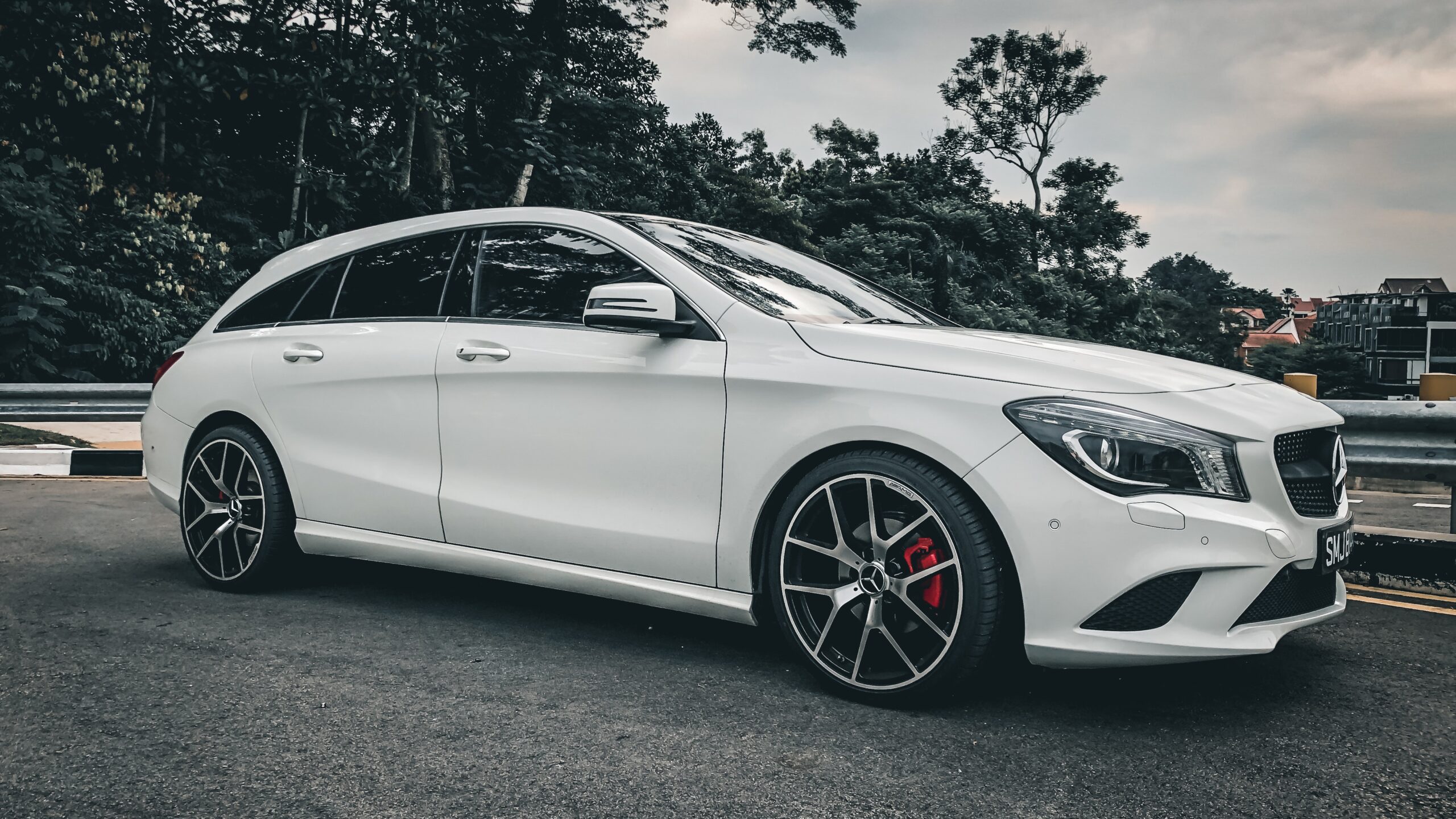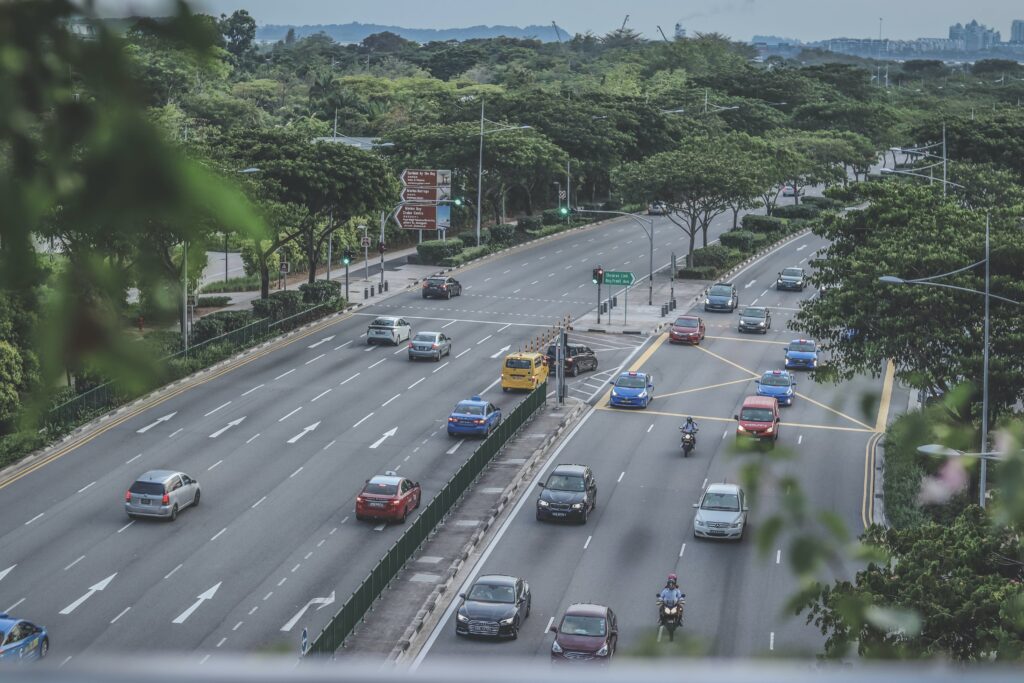
Congratulations, you’ve made the exciting decision to buy a car in Singapore! It’s a responsible move, no doubt, but think about the freedom and possibilities that lie ahead! We get it – buying a car in Singapore is no joke. The prices here can make your eyes pop out, with cars costing up to six times more than in other countries. Yeah, our public transport system is pretty reliable, and car-sharing such as Grab is an option if you only need to drive occasionally.

But let’s be real – there’s something irresistible about owning your very own ride. Picture this in your head: epic road trips to Johor Bahru, discovering hidden gems all around Singapore, and even conquering the challenge of fitting that awesome Ikea furniture into the boot. But hold on, before you dive headfirst into car ownership, let us guide you through everything you need to know – from understanding your requirements to exploring financing options, researching dealerships, and considering insurance coverage. We’ve got your back, so buckle up and let’s hit the road!
Table of Contents
1. Understand Your Requirements
Before diving into the car buying process, it’s essential to assess your needs. Consider factors such as budget, vehicle type, size, fuel efficiency, and features. If you have a family, spaciousness is key, and an SUV is the ideal choice to accommodate everyone comfortably. Imagine those road trips across the causeway with your loved ones, exploring new destinations. An SUV provides the versatility and roominess you need to make those family outings special.
Choosing a fuel-efficient hybrid car is not only a responsible choice but also a smart one. Hybrid cars offer reduced emissions and improved fuel efficiency. Not only will you contribute to a cleaner environment, but you’ll also enjoy savings at the fuel pump.
Given Singapore’s high gasoline prices, fuel efficiency, this is an important consideration. Look for vehicles that are engineered to maximise mileage, allowing you to travel further without breaking the bank.
Of course, your budget is a crucial factor to consider. Set a realistic budget that includes not just the purchase price of the car but also continuing expenses such as insurance, road tax, and maintenance. Owning a car is certainly not cheap in Singapore – with a one-time cost of at least $100,000 and $1,000 monthly cost. Understanding the financial commitment required will promote a stress-free ownership experience.
2. Research Financing Options
If you’re trying to buy a car in Singapore, chances are that you don’t have the cold hard cash available to pay the car dealer. It is common to rely on loans and instalment payments since not everyone has the full amount in cash readily available, especially with the exorbitant prices.
In Singapore, the loan tenure and loan amount are determined based on the car’s Open Market Value (OMV). For cars with an OMV of less than $20,000, the maximum loan tenure is set at seven years, and you can borrow up to 70% of the car price. This means that if you’re eyeing a car with an OMV of $15,000, you could potentially borrow up to $10,500 (70% of $15,000). On the other hand, the maximum loan amount is capped at 60% if the OMV is higher than $20,000. Do take note that these factors may vary depending on factors such as the financial institution, credit score and other lending criteria.
Before finalising a car loan, it’s advisable to shop around and compare offers from different banks and financial institutions. This allows you to find the most favourable terms, interest rates, and repayment conditions that suit your needs.
| Loan Amount | Interest Rate | Loan Tenure | Monthly Payment |
| $50,000 | 2.5% | 5 years | $893 |
| $50,000 | 2.0% | 5 years | $877 |
| $50,000 | 1.5% | 5 years | $860 |
3. Certification of Entitlement
Singapore has strict regulations surrounding car ownership. There’s just one thing you simply can’t avoid: the Certificate of Entitlement (COE). It’s like the golden ticket you need to own and drive a car here. Picture it as your official permission slip, granting you the right to not only own a vehicle but also utilise the limited road space for a glorious decade.
Now, brace yourself for a dose of reality: COE prices are known to be one hell of a roller coaster ride… In fact, as of late, they’ve shot up by a staggering 3.2%! To give you a glimpse of the numbers, the COE for cars and electric vehicles with engine capacities up to 1,600cc and 130bhp recently closed at a jaw-dropping $92,000 (a significant climb from the previous $68,699 back in 2022). And if you’re eyeing a car that falls into the category of over 1,600cc or 130bhp, be prepared to shell out a hefty sum of $113,034 (up from $95,889 back in 2022).
While the ever-changing COE prices may seem daunting, it’s essential to keep an eye on them and plan accordingly. Timing your purchase strategically could potentially save you a lot of money. And remember, the COE duration is set at a generous 10 years, so once you’ve secured your COE, you’ll have a decade of vehicular bliss before needing to renew it. Isn’t it almost like a stock market? In fact, you could also apply some of the investing concepts that I’ve written on and try to apply it to COE.
Now, don’t allow the COE market’s ups and downs to dampen your spirits. Instead, consider it a part of the thrilling journey of Singapore car ownership.
4. Pre-Owned vs New Car
Next, choose between buying a brand-new car or a pre-owned one. A new car offers the excitement of being the first owner, the latest features, and warranties. However, it comes with a higher price and rapid depreciation. On the other hand, a used car provides greater cost savings, a wider range of options, and less depreciation. It’s crucial to conduct thorough inspections and obtain a vehicle history report when buying used. Ultimately, the choice depends on your budget, preferences, and priorities. Let’s consider an example to illustrate the potential savings of buying a pre-owned car:
| Car Model | Brand New Price | Pre-owned Price (1-year-old) | Savings |
| ABC Sedan | $80,000 | $65,000 | $15,000 |
| XYZ SUV | $100,000 | $85,000 | $15,000 |
| DEF Hatchback | $50,000 | $42,000 | $8,000 |
As you can see, buying a pre-owned car can result in significant savings while still getting a high-quality vehicle. Whether you opt for a new car’s appeal or the cost-savings of a pre-owned car, take into account financing, insurance, and maintenance costs. With careful consideration, you can find the perfect car that meets both your needs and budget.
5. Research Car Dealerships
When it comes to buying a car in Singapore, car dealerships are like your trusty guides on this exciting journey. They’re the ones who connect you to the car of your dreams. But not all dealerships are created equal. When choosing a dealership, reputation is important. Look for dealerships with a solid track record and positive reviews. You should ask around in your circle of friends and check online reviews from multiple sources.
But wait, it doesn’t end here with the sales. You need a dealership that provides good after-sales services and customer support after you have driven away from the parking lot. From regular maintenance to warranty coverage, make sure your chosen dealership knows how to care for you and your new “baby”.

In addition, many Singapore car dealerships provide special promotions and deals. Instead of buying on impulse and gut feeling, take the time to test-drive vehicles, ask questions, and negotiate for the best price.
Let’s consider an example to illustrate the prices of different dealerships.
| Car Model | Dealership A Price | Dealership B Price | Dealership C Price |
| ABC Sedan | $70,000 | $72,000 | $68,000 |
| XYZ SUV | $95,000 | $93,000 | $98,000 |
| DEF Hatchback | $48,000 | $50,000 | $47,000 |
By comparing prices across different dealerships, you can potentially find a better deal and save some money.
6. Car Insurance Coverage
Car insurance is mandatory in Singapore, and it’s essential to choose the right coverage for your needs. There are different types of coverage to consider. Compulsory Third Party Only (TPO) insurance is required by law and covers injury or death to third parties. Third Party Fire and Theft (TPFT) insurance adds coverage for fire damage and theft of your vehicle. Comprehensive insurance provides the most extensive protection, including third-party liabilities, fire, theft, and damages to your own vehicle. When choosing an insurance, examine factors such as insured value, excess amount, and other benefits.
Personal accident coverage and roadside assistance are optional add-ons that can improve your coverage. Compare quotes and review your policy regularly to ensure it meets your needs. Insurance premiums vary based on factors such as age, driving experience, and claims history. Look around for the best coverage at a competitive price. With the right insurance coverage, you’ll have peace of mind knowing you’re financially protected on Singapore’s roads.
Consider the following example of how different insurance providers may offer varying premiums:
| Insurance Provider | Premium for Comprehensive Coverage |
| FWD Car Insurance | $794.73 per year |
| MSIG MotorMax | $825.24 per year |
By comparing insurance premiums, you can find a provider that offers suitable coverage at a competitive price.
7. Parking Fees and Petrol
Parking fees in Singapore can be a significant consideration for car owners due to limited parking spaces and high demand. Season parking rates differ depending on the location and type of parking. For instance, HDB season parking rates for non-restricted zones can range from $80 to $110 per month, whereas season parking at private residential areas can cost between $100 and $200 per month.
Apart from season parking, it’s essential to account for additional parking expenses when visiting malls, attractions, or public areas. On weekends, parking rates at popular shopping malls can range from $2.50 to $3.50 per hour. I would say, it is advisable to factor in an estimated monthly parking expense of around $400 per month.
In addition to parking fees, petrol expenses are another crucial aspect to consider. The average price of petrol in Singapore is approximately $2.62 per litre. To estimate your monthly petrol costs, you need to consider your car’s fuel efficiency and your typical driving habits. According to Budget Direct Insurance, the average Singapore car travels 17,500km annually. A Toyota Corolla Altis consumes 6.4 litres per 100km on average. You can expect to spend around $250 a month on only petrol.
Is It Worth It?
By now, you should have realised that buying a car in Singapore is certainly not cheap. In fact, there are more factors to car ownership which I’ve not mentioned such as road tax, maintenance and depreciation. The decision to own a car in Singapore is not to be taken lightly. It involves weighing the financial commitments, convenience, and alternative transportation options available.
Owning a car offers undeniable benefits like the freedom to embark on road trips and convenience of travelling to work. However, it comes with a hefty price tag. The high costs, including purchase prices, COE fees, insurance premiums, maintenance expenses, parking fees, and petrol costs, can be overwhelming when compared to the efficiency and accessibility of public transport or the flexibility of car-sharing services.
To determine if it’s worth it, carefully assess your personal circumstances, lifestyle needs, and budget constraints. Some may find that owning a car enhances their daily lives, while others may discover that existing transportation options suffice. Ultimately, the choice lies with you.
So, is it truly worth it to buy a car in Singapore? Only you can answer that question based on your unique circumstances, priorities, and aspirations. Personally, owning a car in Singapore is not for me and I shall explain why in my upcoming blog post.


Comments (1)
How Much Does A Driving Licence Cost In Singapore?says:
December 26, 2023 at 8:47 am[…] Did You Know? Singapore boasts one of the world’s highest car ownership costs, with a unique Certificate of Entitlement (COE) system that can sometimes surpass the price of the vehicle itself. However, despite the daunting reputation, obtaining a driving licence doesn’t necessarily follow the same steep financial trajectory. For a deeper dive into the intricacies of buying a car in Singapore and whether it’s worth it, you can check out my blog post here. […]